Big bang! Small hands… Big ideas!
Creative woodwork in early childhood
These are exciting times. In recent years there has been a surge of interest in woodworking in early childhood education around the world. In some cases this will be settings starting from scratch, in others, it’s a case of dusting down the workbench and digging out the tools after many years of neglect.
This is very welcome as benefits of woodwork for children’s learning and development run deep across all areas of learning. Teachers who provide woodwork regularly observe exceptional levels of sustained engagement, with deep focus, concentration and perseverance with challenging tasks – especially with complex problem solving. It is not unusual children to spend all morning at the woodwork bench. Woodwork really engages hands, minds and hearts.
The rise in the popularity of woodwork not surprising given the levels of children’s enjoyment and the fact that it provides such a profound learning experience. The renewed interest is perhaps in part a reaction our increasingly digital world, where children have learnt to swipe before they can walk, and also the fact that currently ‘making’ is back in fashion, with a renewed interest in craft and upcycling, perhaps a reaction to our overly homogenised world. In terms of sustainability, woodwork gives children the experience of making and repairing, countering the prevalent culture today of consuming and disposing.
Perhaps the biggest factor though, has been the shifting attitudes moving away from risk aversion. Following from Lord Young’s review of Health and Safety 2010: Common Sense Common safety, and subsequent positive guidance from the Health and Safety Executive (2012), the DoE (2013) and recently from Ofsted (2017), schools in the UK have felt encouraged to take a more balanced attitude towards risk and embrace woodwork once again. This is a significant culture shift and whilst still in its infancy, should be wholeheartedly celebrated.
There is something really special about woodwork. It is so different from other activities. The smell and feel of wood, using real tools, working with a natural material, the sounds of hammering and sawing, hands and minds working together to express their imagination and to solve problems, the use of strength and coordination: all go together to captivate young children’s interest.
We observe children working with their hands, tinkering, constructing models, and working on projects, but in fact the real transformation is inside the child – personal development is at the heart of woodwork.
Woodwork is a powerful medium for building self-esteem and confidence. This is for a combination of reasons. Children feel empowered and valued by being trusted as they take responsibility to work with real tools. They accomplish tasks that they initially perceive to be difficult and problem-solve to resolve challenging tasks. They show great satisfaction in their mastery of new skills and take immense pride in their creations. This sense of empowerment and achievement provides a visible boost to their self-esteem and self-confidence. Children have a natural desire to construct and build. This imparts a ‘can-do’ attitude and imbues children with a strong sense of agency – a belief they can shape their world.
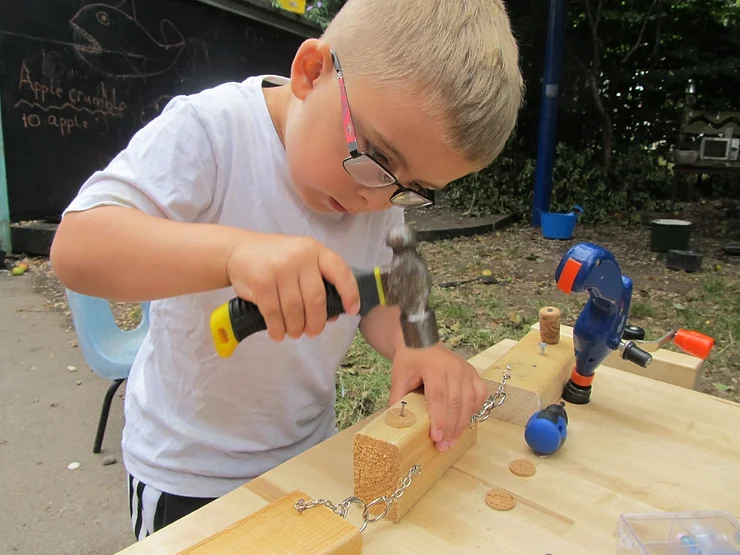
When we analyse a woodworking session it is extraordinary to see just how much learning is involved. It encompasses all areas of learning and development and invites connections between different aspects of learning. It supports current thinking on how children learn best, embracing all the characteristics of effective learning and thus fostering confident, creative children with passion for life-long learning. Woodwork really can be central to curriculum. It incorporates mathematical thinking, scientific investigation, developing knowledge of technology, a deepening understanding of the world, as well as physical development and coordination, communication and language, and personal and social development.
Woodwork provides another media through which children can express themselves. Creative and critical thinking skills are central both in terms of imagination and problem-solving as children make choices, find solutions, learn through trial and error and reflect on their work. Children are drawn in as they explore possibilities, rise to challenges and find solutions. Woodwork is really unrivalled in terms of providing children with problem solving opportunities and challenge. I know no other activity that promotes creativity and critical thinking in quite the same way that woodwork does and I believe this is really at the heart of woodwork’s appeal and success.
Some children particularly flourish when working with wood, enjoying working three-dimensionally and working with their hands. The experience of woodwork can really be the key that unlocks some children’s learning.
Children are surrounded by complex technology but this has limited their experience of basic technology, with fewer opportunities to watch and learn and to understand processes In recent years there has been a marked decline of woodwork in primary and secondary schools with less than half of pupils ever using tools in their entire education.
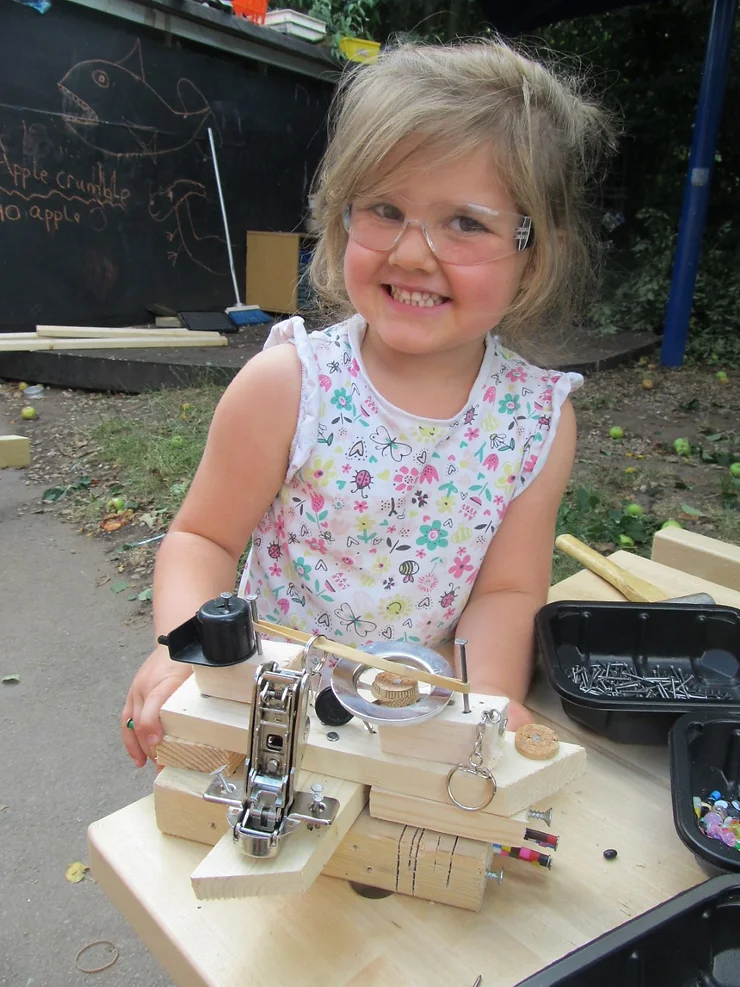
The confidence to work with tools provides a skill set for life. Many children will need practical skills for their future work and woodwork in the early years could well be children’s only experience of working with tools. Fortunately working with tools leaves a deep memory – so even if early childhood education is their only experience of working with wood it will leave a long lasting impression. Many adults recount that experiencing woodwork as a child is one of the memories from early childhood that still really stands out.
With woodwork children can develop their learning at their own pace and find their own challenges. Once they have mastered basic skills, they move into open-ended exploration – tinkering, exploring possibilities and then start making unique creations. Their imagination, creative thinking and problem-solving skills really flourish as they meet and conquer new challenges.
Some teachers and parents are surprised that we introduce woodwork to children as young as three, but it must be emphasised that it is a low risk activity when introduced and monitored correctly. We have been successfully woodworking with pre-school children for over 20 years with no significant incidents.
Woodwork is one of the most popular activities and incorporates so much learning. Let’s provide all children with this valuable opportunity.
If you are already doing woodwork – please contribute the The Big Bang Research Project researching the impact of woodwork on young children’s learning and development. Follow this link to complete the online research survey: https://irresistible-learning.co.uk/woodwork/the-big-bang-research-project/
Your contribution would be very much appreciated
Pete Moorhouse is an early years creative consultant and artist educator. Pete is the UKs leading authority on woodwork in Early Years education and has written several books and journal articles, including ‘Learning Through Woodwork’ (Routledge). He is currently working his latest book – ‘Creativity in Practice: Nurturing creative and critical thinking in early childhood education’. Pete won the national award (2019) from the Creative Learning Guild for his work promoting creativity in education.
CPD woodwork training is available throughout the UK (when restrictions allow) and Pete is now offering an in-depth online woodwork course – a set of 8 pre-recorded videos and a set of 14 handout proving you with all the information you need to get started: https://irresistible-learning.co.uk/woodwork-cpd-online-course/
Pete’s book ‘Learning Through Woodwork: Creative woodwork in the Early Years – Routledge 2018 – goes into considerable depth and makes for a wonderful resource for any school:
https://www.amazon.co.uk/Learning-Through-Woodwork-Introducing-Creative/dp/1138071102
Pete can be contacted through his website: https://irresistible-learning.co.uk

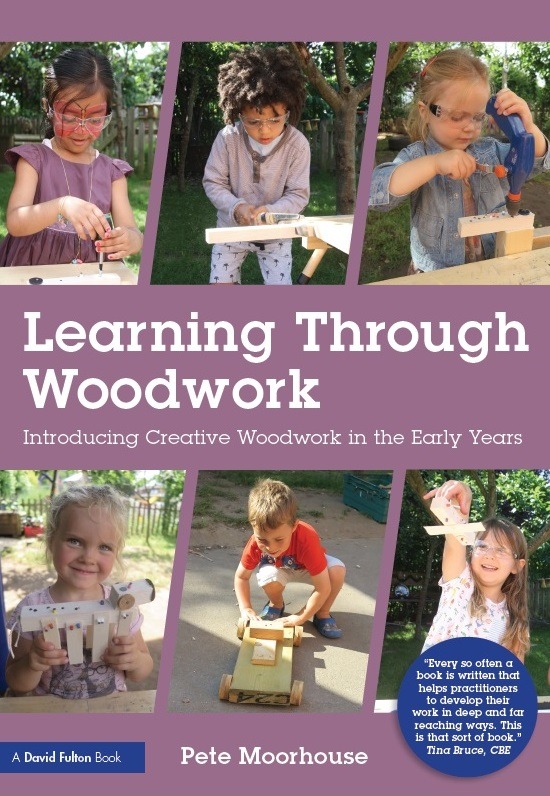
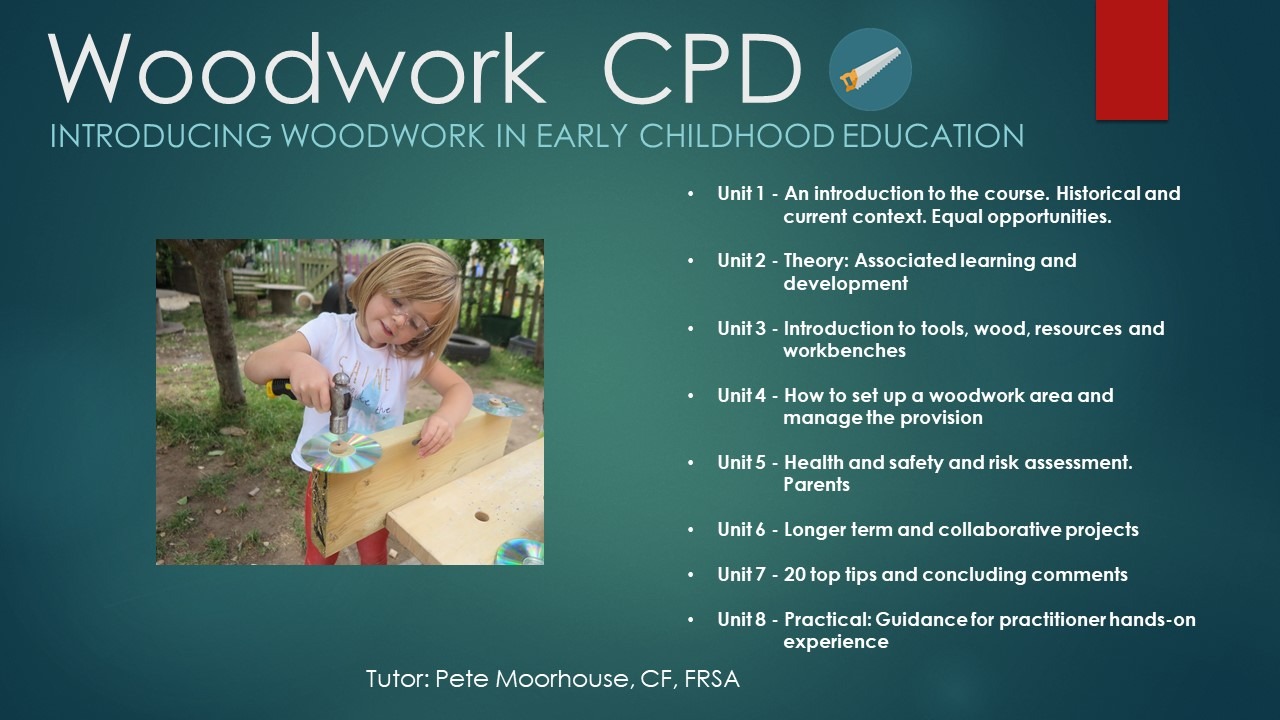
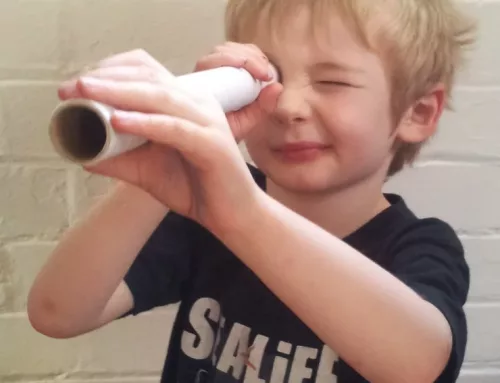

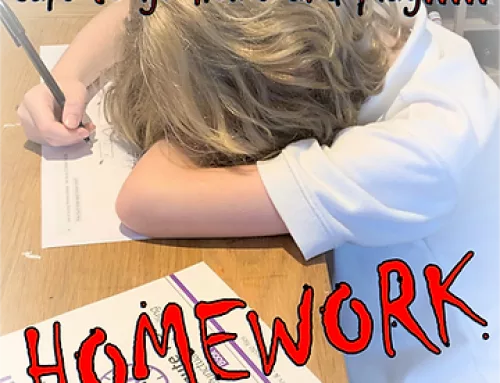
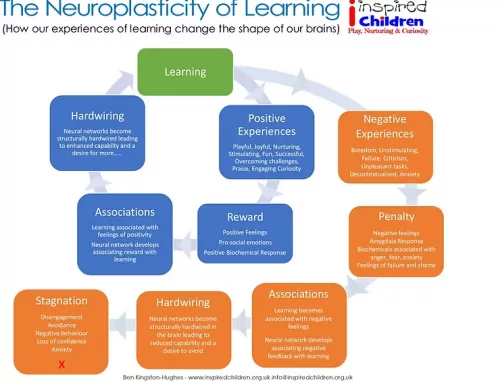
Leave A Comment